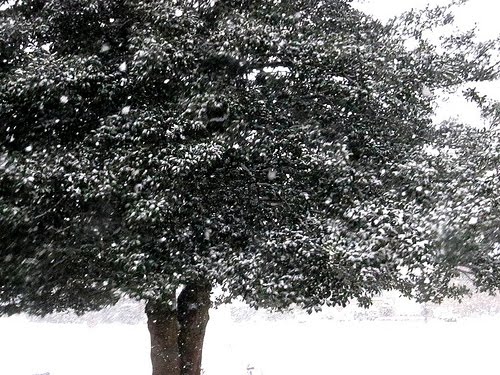The more I read Animal, Vegetable, Miracle, the more I wonder how realistic a life like that is anymore. Yes, it is absolutely wonderful that Barbara Kingsolver and her family aren't feeding into the monopolizing food industry, but every family having their own farm and eating only what grows in their own community seems pretty far-fetched to me in the quick-paced and industrialized United States. It's clearly healthier to live this way (body only gets food from natural food sources, no high fructose corn syrup, partially hydrogenated oils, margarine, etc.), but so many Americans have thrown out their health anyway. Plus, I think about my future and how practically impossible it would be for me to live a lifestyle like that. Sure, I'd rather starve than eat a deep-fried Twinkie, but there is no way I'd be able to grow all my own food as a struggling med student. I guess I'll just try to eat organic whenever possible, and maybe grow a few plants. By the way, i just googled the Twinkie website to make sure I spelled "Twinkie" correctly, and I consequently learned that a Twinkie has a shelf-life for 26 days... ew, that can't be healthy.
Anyway, although I think this memoir/investigative journal is very idealistic, I have learned a lot about animal cruelty. I'm a vegetarian because I've always felt sympathetic towards animals, but I don't have a problem with non-vegetarians just as long as their respectful toward animals. I always connected to those Native Americans tribes who have ceremonies celebrating the buffalo or another animal. I don't really like how homo sapiens deem themselves as the dominant creature. I'm way off track. Anyway, Barbara Kingsolver and her family aren't vegetarians, but they only eat free-range meat, which is apparently the way to go. I don't miss meat at all, and frankly, free-range meat is way too expensive (for my family at least) so I'm still fine with my vegetarian status. However, Kingsolver wrote a pretty convincing paragraph that only made me more sympathetic of poor edible animals:
"Of the 400 million turkeys Americans consume each year, more than 99 percent of them are a single breed: the Broad-Breasted White, a quick-fattening monster bred specifically for the industrial-scale setting. These are the big lugs so famously dumb they can drown by looking up at the rain. (Friends of mine swear they have seen this happen.) If a Broad-Breasted White should escape slaughter, it likely won't live past a year old: they get so heavy, their legs collapse. In mature form they're incapable of flying, foraging, or mating. That's right, reproduction. Genes that male turkeys behave like animals are useless to a creature packed wing-to-wing with thousands of others, and might cause it to get uppity or suicidal, so those genes have been bred out of the pool. Docile lethargy works better, and helps them pack on the pounds."
Pobre Pavos. (Poor Turkeys) The page continues on explaining how humans artificially extract turkey sperm and introduces it to hen egg, since the majority of American turkeys are unable to have sex. This book has been extremely eye-opening. Maybe I can convince my family to eat tofurkey this Thanksgiving.
Reading Log since last post:
animal, Vegetable, Miracle: 50 pages


No comments:
Post a Comment